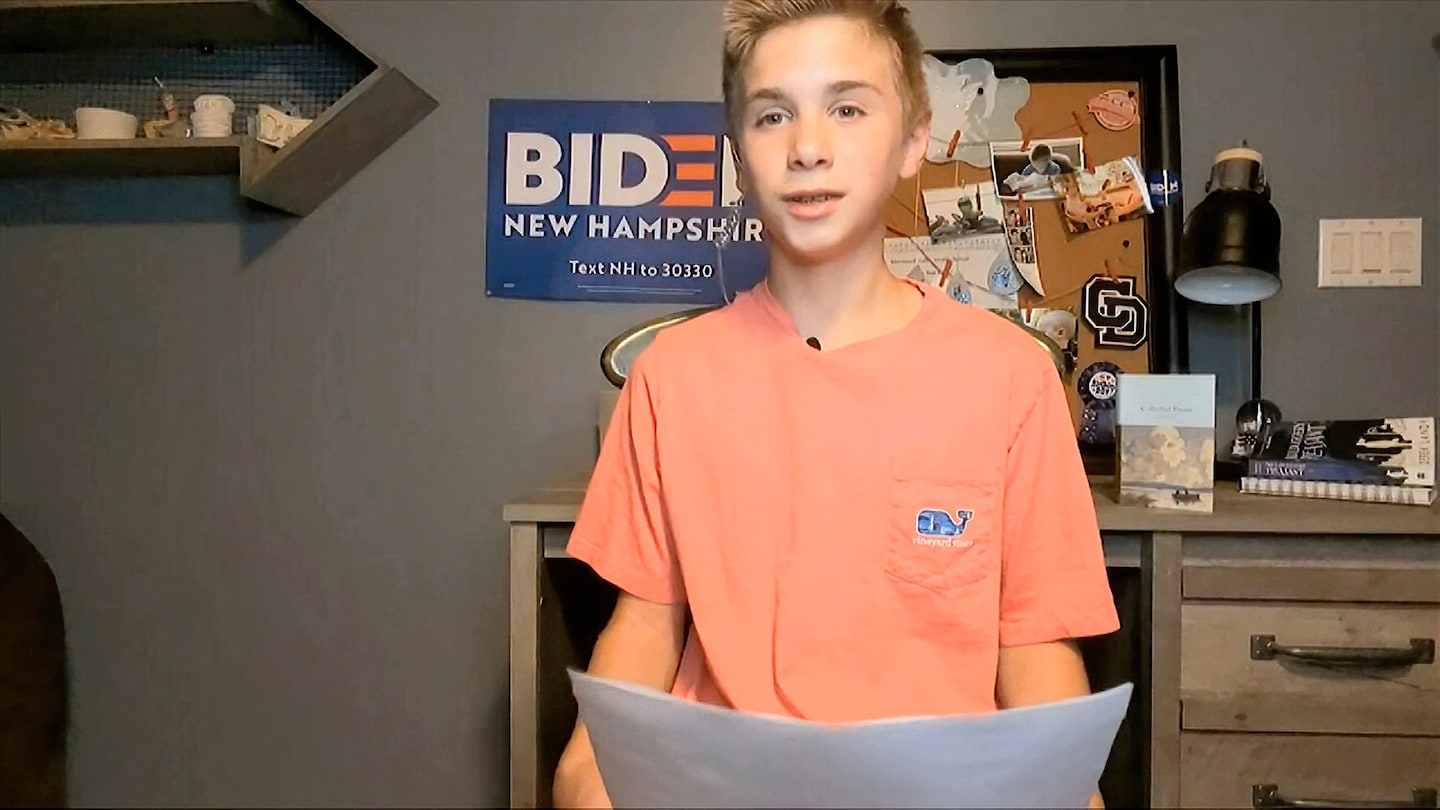I saw myself in Brayden Harrington’s story of stuttering. He showed us the power of sharing it openly.

Stuttering affects approximately 3 million Americans. It’s most common in kids, with 5 percent of children struggling with this speech impediment at some point in their childhoods. Many continue to stutter as adults. The cause of stuttering is thought to be a combination of neurological, psychological and genetic factors.
Disfluency manifests in different ways. Sometimes, there are repetitions of a single syllable. Other times, there may be a long pause before the sound comes out. The disfluency could be so severe that entire words are blocked.
Many PWS, like me, are covert stutterers. That means we are able to hide our disfluency enough that we can trick others into thinking that we don’t stutter. As a child, I knew which words would trip me up, so I found ways around them. Words beginning with “P’s” were a problem, so I wouldn’t ask for a pencil, but something to write with. “L’s” were also a problem — which was hard, since my name begins with the letter. I’d find ways to avoid introducing myself. It was better to be known as the quiet kid than the one who couldn’t get her words out.
My biggest fear? Being disfluent in front of others. I couldn’t admit that I stuttered. I thought that if others knew, it would be the end of my dream to become a doctor. I did everything I could to avoid the repetitions and the blocks, often coming up with long sentence contortions just to get around trouble words. I would have been mortified to stutter even in front of my friends. I’d have done anything to avoid giving a speech in which my disfluency showed.
It took me until my early 20s to seek treatment for stuttering. I met an incredible speech therapist, Vivian Sisskin, who helped me come to terms with my identity as a PWS. Vivian introduced me to many others who had one thing in common: We were PWS, and we no longer wanted to live with fear and shame because of it.
Today, I am still in touch with these PWS. We support one another in our professional and personal pursuits, and we mentor young people whose shoes we were once in. After Brayden’s speech, our listserve was flooded with messages.
The same three themes appeared over and over. (I’m sharing them here with permission from the writers.) “I thank Brayden for showing everyone out there that stuttering does not preclude you from sharing your voice and being heard,” said Vadim Brand, a technology developer living in Chicago. “That what you say can matter, even if it’s disfluent.”
Another theme was that it mattered that he showed his disfluency. “What I loved about it is that he had the courage not just to speak about his stutter to millions of people watching, but to stutter openly in front of millions of people watching,” said Ryan White, a project manager working in international development in D.C. “He could have done take after take of his speech, recording it over and over until he either spoke without a stutter or with only minor disfluencies, but he chose to use the version where he had noticeable blocks that couldn’t just be dismissed as something other than a moment of stuttering. He stuttered publicly, openly and with a smile on his face the entire time.”
We all wished we had seen this video when we were children. Ben Goldstein, a Bethesda-based speech-language pathologist and PWS himself, described it as a “pinch me” moment. “Growing up, I can’t remember a single instance of stuttering being presented in a positive light in popular culture or on a national scale. If it was mentioned at all, it was something that was ridiculed and mocked. To see a kid share the bravery, courage and vulnerability that stuttering often forces us into, and show it so well — it’s hard to put into words what that felt like and means for so many of us.”
Watching Brayden is a reminder of how our greatest source of shame can also be our greatest source of strength. Learning about his interaction with Biden, who has spoken openly about his own struggle with stuttering, shows what happens when our vulnerability is met with compassion and kindness. Regardless of our politics, I think we can all be inspired to show others that they belong, that they are worthy and that every voice matters.
Read more:






